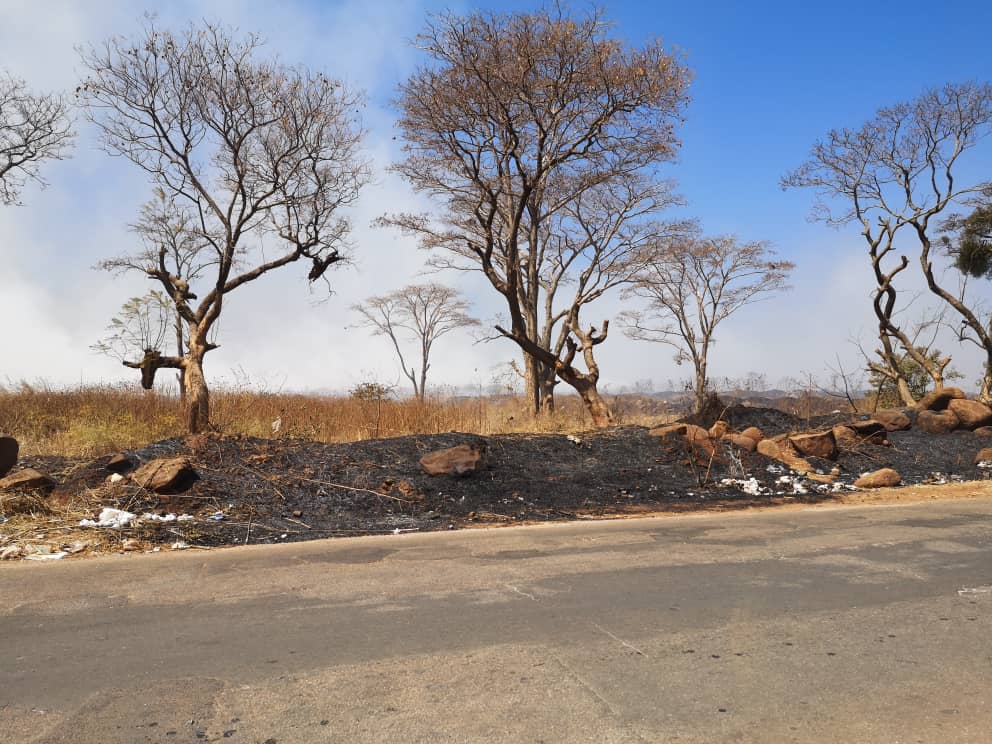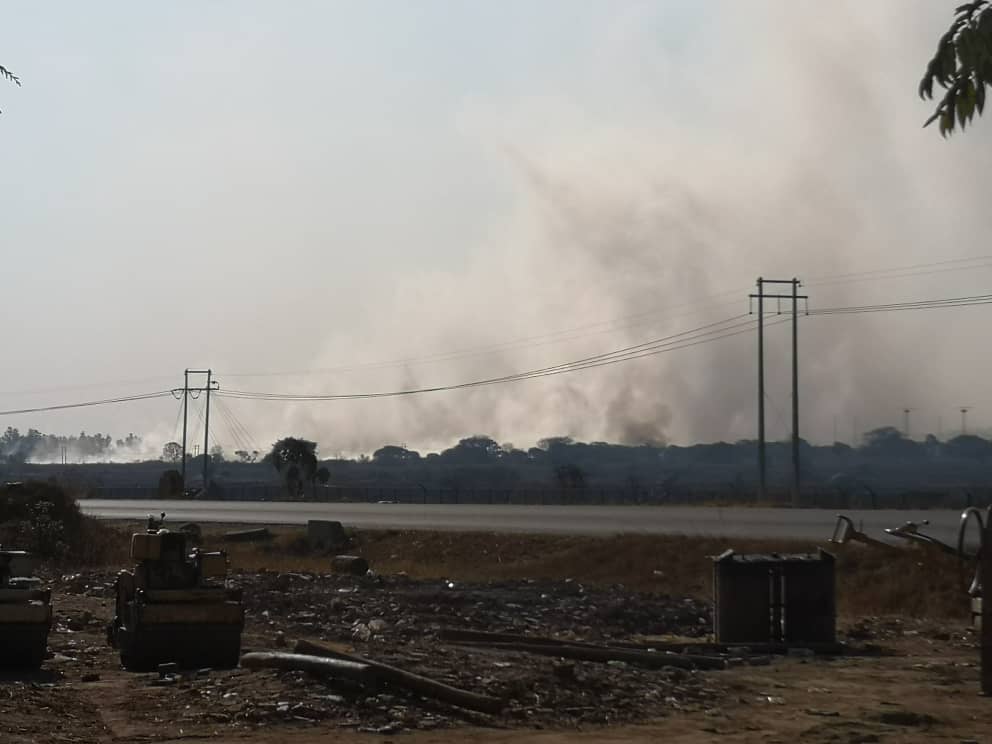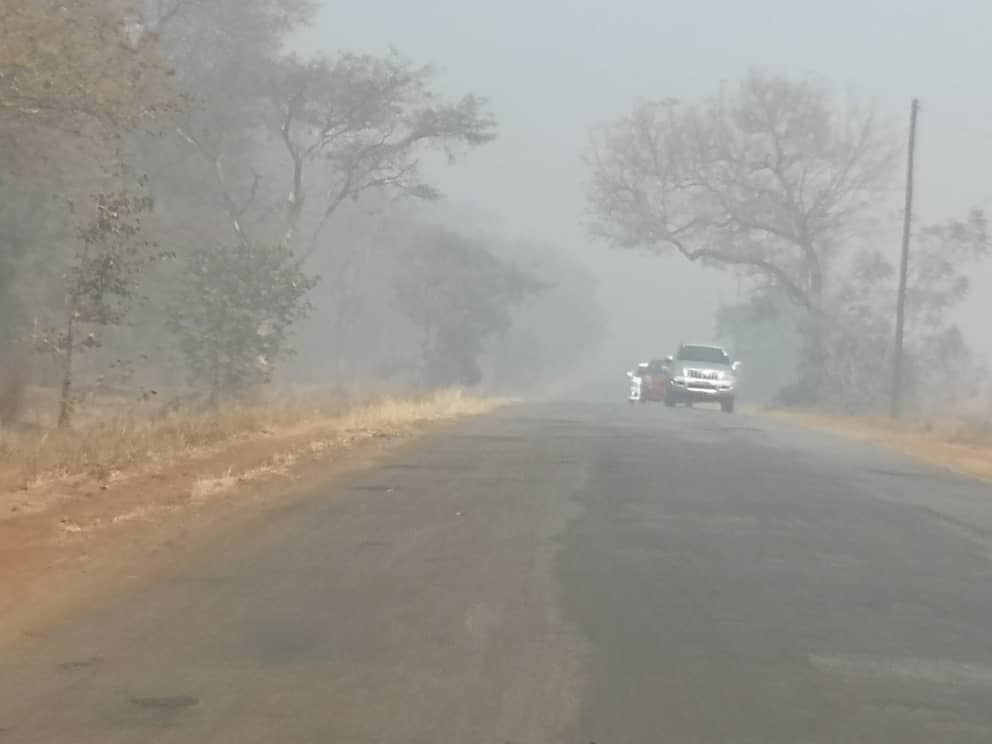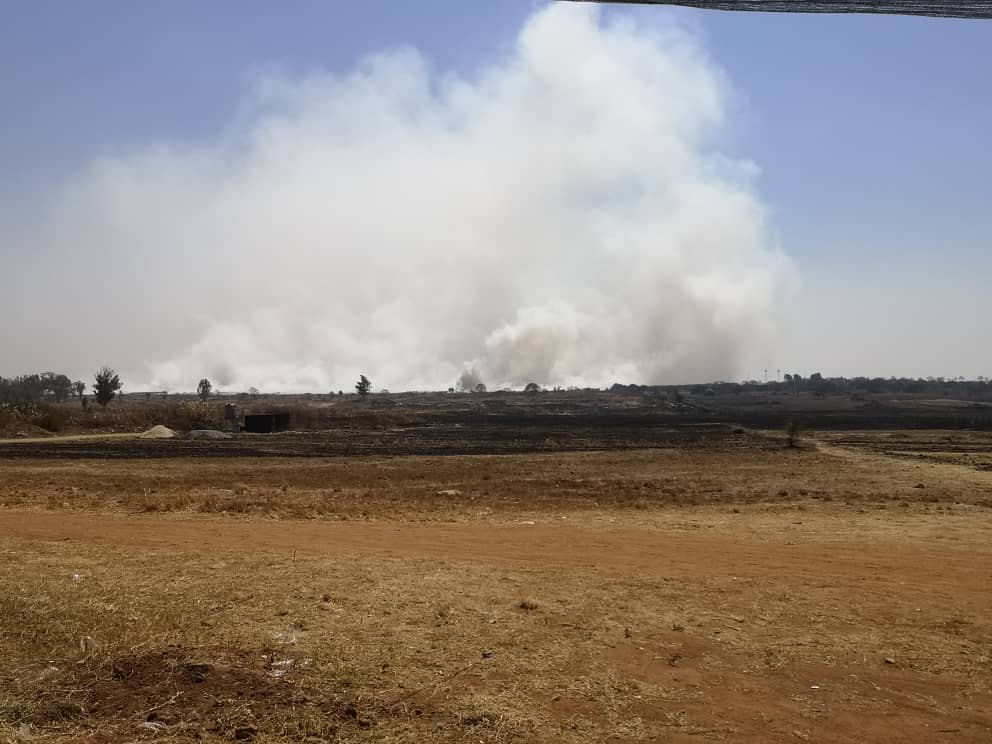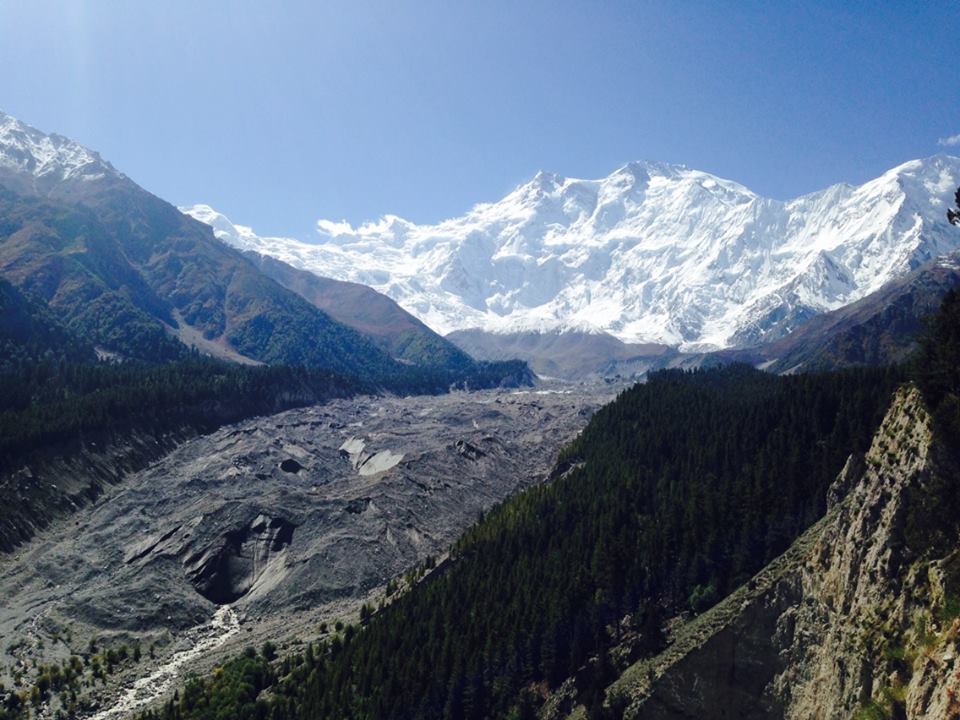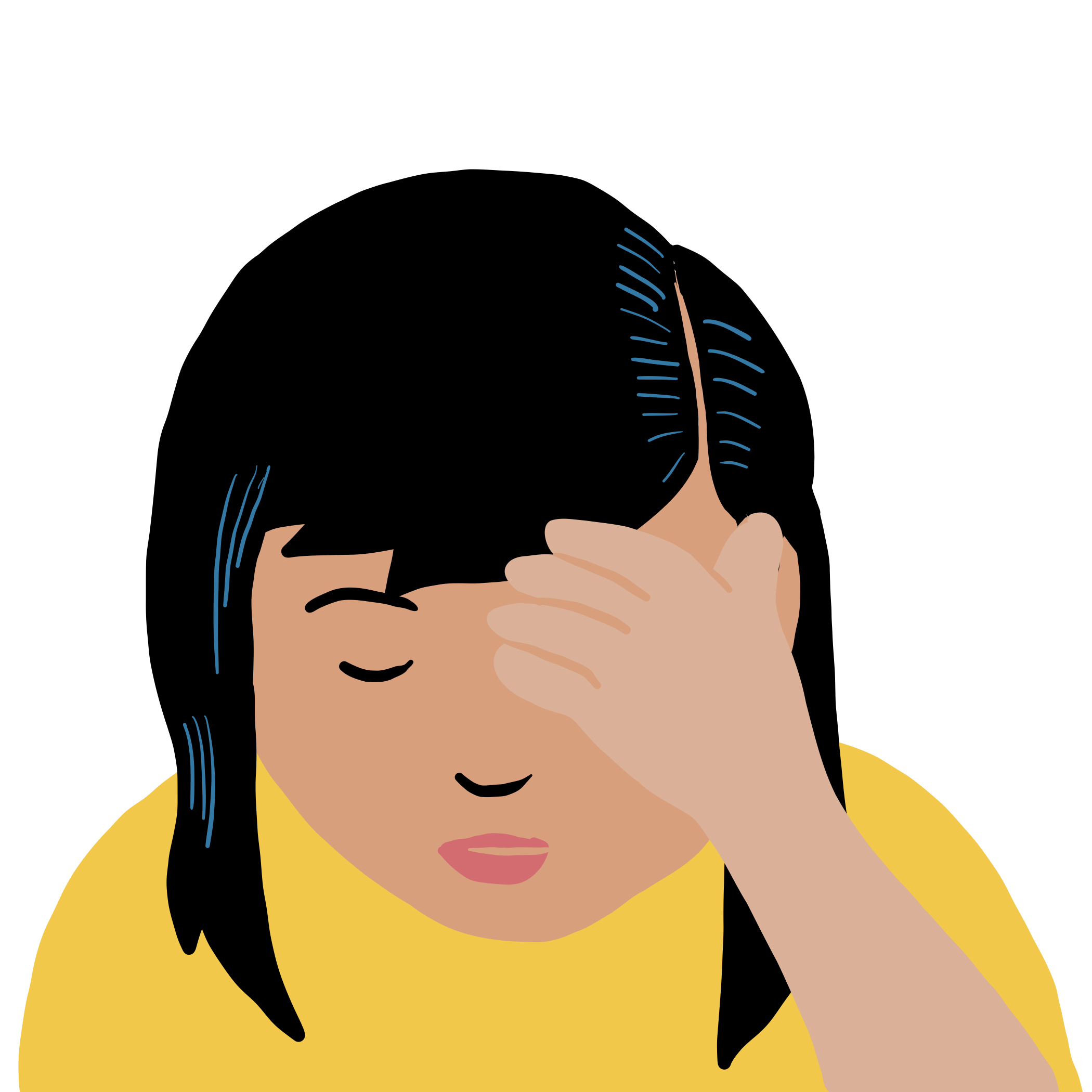A Raging Dumpsite Fire Spreads Pollution
A dumpsite fire in Harare’s northern suburb of Pomona was left to run its course for more than a week. The nearby residential areas were covered in smoke and the danger was that the smoke could contain toxic elements.
The danger is that the smoke contains toxic elements that are harmful to nearby residents and the environment. The Pomona dumpsite, also known as Teviotdale, is an abandoned quarry 12 km from the city centre in the headwaters of the Gwayi River. The idea was for the dumped waste to fill excavations that had been created by sand mining.
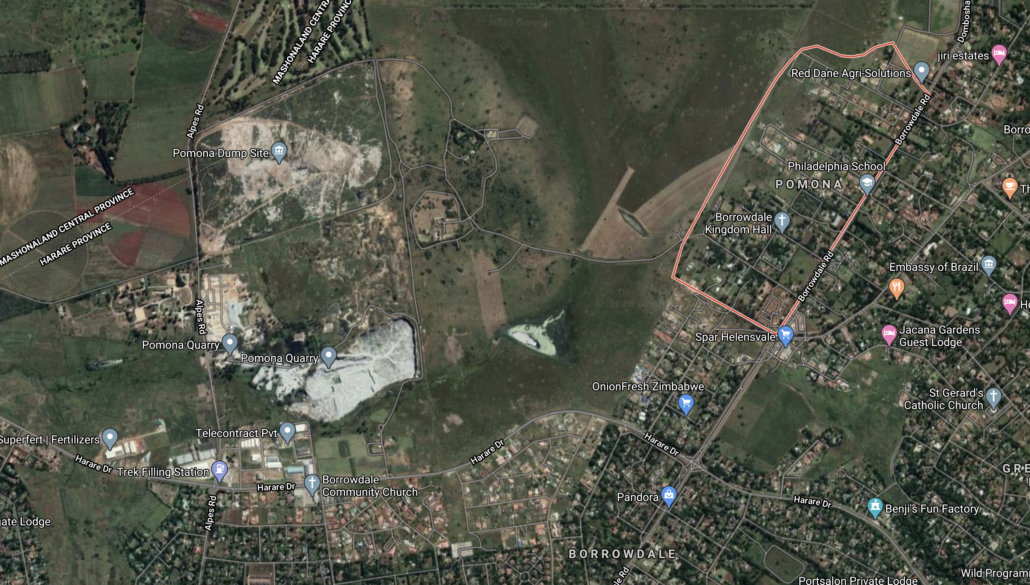
The Harare City Council had the vision of transforming the city into a world‐class city and the environmentally sound update to its waste management was a significant part of the plan. However they haven’t fully integrated the informal recycling sector, that is, people who collect trash for a living, into their plans and the resulting dumpsite fire is a clear sign of this. Informal recycling positively contributes to a city’s solid waste management in cities, especially in developing countries. It also is one way of dealing with pollution, which is strongly linked to survival rates of diseases like Covid-19.
Zimbabwe’s reality is that it is an informal economy, with less than 5% of is population paying taxes. Local and national authorities have to find new and better ways of coordinating and working alongside informal workers, something which is beneficial to everyone.
The African Union Agenda 2063 set an ambitious target by committing countries to recycle at least half of their urban waste by 2023 and to growing the urban waste recycling industry. The target is intended to preserve public health while unlocking numerous economic opportunities of waste as a resource.
However, the current state of solid waste generation and management, prevents the continent from achieving such an ambitious target. The statistics are interesting;
125 million tonnes of municipal solid waste was generated in 2012, and this is expected to double by 2025;
The average collection rate is only 55 per cent;
More than 90 per cent of waste generated is disposed of at uncontrolled dumpsites and landfills, often with associated open burning.
The good news is that almost all of the waste generated in Africa is recyclable.
Of the estimated 70–80 per cent of the recyclable waste generated in Africa only four per cent is currently recycled which presents some businesses with opportunities.
In Harare, since 2018, the Green enterPRIZE Innovation Challenge has helped several SMEs in waste management and recycling develop and focus ideas which can provide innovative solutions to the environmental and social challenges affecting the sector while providing job opportunities. One of the companies, Refuse Collection Services was in the front line of the emergency at Pomona dumpsite.
Open dumping and burning are the main waste treatment and final disposal systems in low-income countries. But environmental contamination and social issues are a consequence of these practices. Moreover, there are health risks involved in waste scavenging. A dumpsite fire, if not managed, can potentially release harmful toxins into the air and further afield to nearby residential areas.
Nearly half of Zimbabweans will live in urban areas by 2050. In Harare areas where garbage is not collected regularly, residents throw their waste into streets and open areas or burn it at night. Nearly half a kilogram of waste is generated per person per day, which translates to about 233,000 tons annually for an estimated population of 1,5million people in the city.
The environmental impacts of waste mismanagement impacts at three levels all over the world: At the local level the results can be soil and groundwater pollution, the spread of diseases carried by mosquitos and rodents and air contamination; At the regional level, pollution of water that is used for agriculture and household purposes, and at the global level it can lead to global warming and contamination of the oceans, seas and rivers.
Just like the fight against the Covid-19 virus everyone’s actions will make a difference. Knowing and caring about what happens to your trash once it leaves your home office or school makes a difference. Sorting out your trash so that its easier to recycle also makes a difference.
© Copyrights 2024 All Rights Reserved. 17Promises
